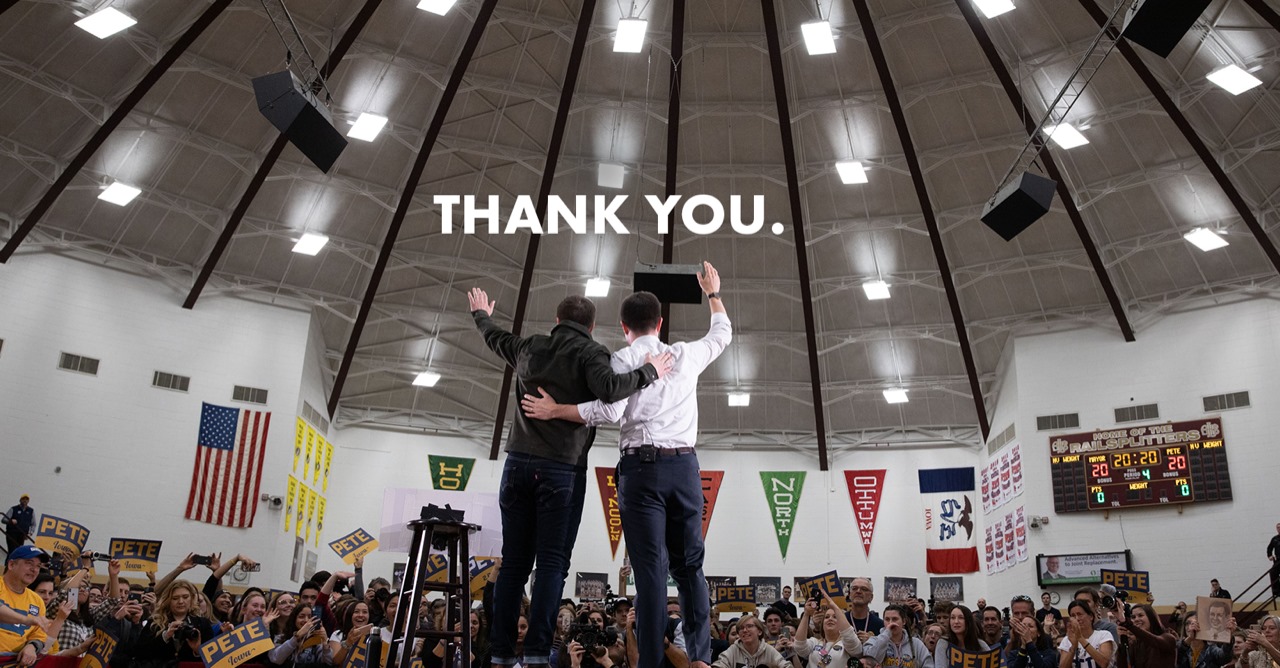Lorena Garcia is Putting the People Back in the Senate

Intersectionality, accessibility, and squashing the sexist, patriarchal norms through queer…
Colorado Senate hopeful Lorena Garcia is campaigning on a platform that is rather unique to her competition: she is seeking people-centered policies from the background of social justice policy advocacy.
When broken down, that ultimately means that Garcia believes the people of Colorado want to see a government that works for us all. Having been close to the work her entire career, Garcia has been working on the front line fighting for equity, dignity, and justice for everyone, especially those who have been pushed to the margins.
The impetus for Garcia to run was set off the day that Brett Kavanaugh was confirmed with a life-time appointment to the Supreme Court. Colorado’s current United States Senator, Cory Gardner, was responsible for Kavanaugh’s confirmation, and it was in that moment that she and her wife realized they would no longer wait for someone to stand up for their rights. In November of 2018, Garcia announced her run for United States Senate in Colorado.
OUT FRONT recently connected with the candidate who is as articulate about policies as she is passionate about her community. As a queer, Latinx woman, Garcia is well-versed on issues that face marginalized folks who are simply trying to do right by their families and their neighborhoods. From social issues to federal policies, all the way down to what makes Garcia just like you and me, we talked about it all in this Q & A.
What made you decide to run for a seat in the Senate?
There’s a lot of reasons why I wanted to run for U.S. Senate, like Betsy DeVos, Ben Carson, and Brett Kavanaugh. Ultimately, it comes down to recognizing that most of our federal elected representatives are in those positions to do better for themselves and not for the people that they want to represent.
It’s very clear when we see Cory Gardner constantly voting against the people of Colorado, whether it’s in his confirmations of appointments or if it’s on policy. I decided to run for this seat because, given my extensive background in nonprofit social justice organization management, activity organizing, and policy advocacy work, it was time for a new type of leadership.
What specifically about the Kavanaugh hearings made you want to become more politically active?
That really was the straw that broke the cart’s wheel, and mostly because hearing the stories of the women from Colorado that invested their money, flew all the way to Washington, D.C., sat and told Cory Gardner their survivor stories, and he said not a word, got up, and leaves the room, and then went around and voted Kavanaugh into office.
That was the point when I said, ‘I’m done with this type of politician, and that’s all we have right now. That’s when, with my family, with my wife, with my close mentors and confidants, we discussed and decided this is what needs to happen if we want real representation. If we want somebody who is willing to put everything on the line for the sake of the people, then we need to change the type of people who are running and those who win.
What makes you the right candidate to bring a new type of leadership?
It really comes down to the idea that I always bring directly impacted people and communities to the table when it comes to developing solutions and addressing problems. Most of the time, marginalized communities that are most directly impacted by policy are never even considered a second thought, much less given a seat at the table. I think it’s time that the way that I have always led the these events and these organizations is the way that we do policy at the federal level.
When we’re talking about policies, a lot of things can feel very divided, but what bipartisan issues are you looking to sink your teeth into?
The reality is, everything impacts all of us, and I think that when we consider certain issues as partisan politics is what gets us in trouble. When we talk about healthcare, LGBTQ rights, or education as a part of an issue, that automatically raises the walls for any sort of collaboration. When people talk about bipartisan policy, I think that short changes; what we need to be talking about is nonpartisan policy.
Have you noticed any sort of issues or pushback when it comes to being a visibly queer woman pursuing a seat in the Senate?
Luckily, no. I think the reason is because I don’t hide it; I normalize it. When people talk about their families, I talk about mine. I don’t allow it to be an issue.
What do you feel are some of the issues that queer folks are facing here in Colorado, and what would you like to do to improve those?
I think a lot of the issues that the queer community is facing in Colorado is the fact that many of our rights are tied to the courts, and the fact that we have a majority of the justices who can be linked directly to the republican’s puppeteering. Our rights are being rolled back in the agencies that are supposed to be protecting them. We saw Betsy DeVos roll back protections for LGBTQ youth in schools; we’re seeing their efforts of changing rules and regulations so that people can discriminate against us in housing and jobs, and we saw this happen in the military with the trans ban.
I mean, the fact is that right now, the republican party is trying to skirt our democratic process and violate our rights by going to and manipulating the democratic system by going through the courts, and going through rules and regulations; that’s why the U.S. Senate is so important. When people ask me, ‘Why don’t you start with the school board?’ I say, ‘Not a chance,’ because right now this is where the need is. This is where we need somebody who’s strong, is going to stand up, and is going to fight, no matter the cost, for each and every one of us.
What have you learned as you’ve been on the campaign trail that Coloradans are really needing?
People are needing inspiration; people are needing hope. We have been in this cloud of, every single day, more bad news for the last three years. And people are wanting to wake up and it be sunny and people are wanting to be able to have a positive outlook in life instead of saying, ‘I just can’t even read the news anymore.’
Is there something that you would choose to do on day one if you were elected?
One, I would start the process to grow our supreme court to at least 11 judges. We can’t wait an entire generation to restore integrity to our court system.
I would also, within the rules of the Senate and the operations of the senate, I would fight to create a rule that that would spark mandatory hearings for every single bill that has at least three co-sponsors. The idea that committee chairs can decide what bills are heard and what bills are not heard is, to me, a violation of our democratic process.
What would it mean to you if you were elected?
It would mean we have a lot of work to do; it would mean that the state of Colorado put their trust in me, and the last thing I want to do is let them down.
What else would you like people to know about you?
I think it’s also important to know I’m not just immersed in policy and politics. As somebody who also just lives a regular life, me and my wife have two dogs; I love to go running when it’s warm, and I like to sit in my pajamas in bed when it’s snowing. I’m relatable; I’m a regular person.
Sometimes, my wife and I have to decide do we go grocery shopping or, if we can’t afford it, can my parents cook us dinner. We know what it’s like to live real life here, and because we live it, we also have a very unique perspective that doesn’t exist right now at the federal level except for a couple people in the House.
What's Your Reaction?
Intersectionality, accessibility, and squashing the sexist, patriarchal norms through queer pearls of wishful wisdom.










